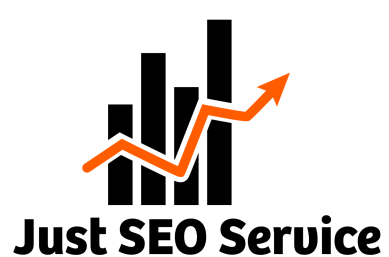On-Page SEO Optimization Service
Organic Traffic and Drive more Revenue From Searches
what Is On-Page SEO Optimization?
On page SEO is the most significant contributing factor to rank and bring traffic on your site!
We will perform Keyword Research and give you perfect recommendations for your Section Headers (H1-H6), URLs Title Tag, URLs Meta Description, Images and media and other key Elements with Full Report.

Claim Your Free On-Page SEO Audit

How to Start On-Page SEO?
To initiate on-page SEO, consider engaging an on-page SEO company. Partnering with experts ensures comprehensive coverage of your on-page SEO checklist. These specialists conduct thorough keyword research and optimize various elements of your website, guaranteeing an enhancement in your site’s overall SEO performance.
Why is On-Page SEO is Important?
On-page SEO is crucial for better search engine visibility and user experience. It ensures your content is easily found and understood by search engines, driving targeted traffic to your site. Optimizing key elements like titles, content, and structure enhances your site’s relevance and competitiveness in search results.

The Process
How It Works

1. Request
Feel free to share your content preferences, indicate the URL requiring on-page optimization, or request personalized recommendations. We’re here to help tailor your content strategy for maximum impact.

2. Review
Take a look at the topics we’ve researched diligently and let us know which ones resonate with you. We’re eager to hear your thoughts on the potential topics we’ve compiled!

3. Relax
Our team is equipped to manage all aspects of content creation, including writing, editing, and revisions. Additionally, depending on the platform you’re utilizing, we can also assist in publishing your content.

4. Rank
Watch as your latest content gets indexed, acquiring additional keywords and helping elevate your search rankings.
Start driving revenue with Just SEO Service on-page SEO service plans
OUR PRICING PLANS
While Just SEO Service does provide on-page SEO plans, our expertise lies in crafting personalized on-page SEO services for each of our clients.
If you’re eager to kickstart your unique, revenue-boosting on-page SEO strategy, get in touch with us today!
Basic Plan
- 50 Optimized Keyphrase
- 10 Pages Optimized
- Robots.txt optimization
- Keyword research & selection
- Title Tags & Meta descriptions
- Spammy Links Disavow
- Image optimization
- XML sitemap creation & submission
- Ongoing monthly traffic reporting
- Custom 404 error page setup and optimization
Standard Plan
- 100 Optimized keyphrase
- 25 Pages Optimized
- Robots.txt optimization
- Keyword research & selection
- Title Tags & Meta descriptions
- Spammy Links Disavow
- Image optimization
- XML sitemap creation & submission
- Ongoing monthly traffic reporting
- Custom 404 error page setup and optimization
Premium Plan
- 150 Optimized keyphrase
- 40 Pages Optimized
- Robots.txt optimization
- Keyword research & selection
- Title Tags & Meta Description
- Spammy Links Disavow
- Image optimization
- XML sitemap creation & submission
- Ongoing monthly traffic reporting
- Custom 404 error page setup and optimization
Do You Have Any Question
Looking to learn more about on-page SEO services? Read our FAQ:
Optimizing for on-page SEO involves several key steps:
Keyword Research: Identify relevant keywords for your content. Use tools like Google Keyword Planner, SEMrush, or Ahrefs to find suitable keywords.
High-Quality Content: Craft engaging, informative, and valuable content that aligns with your chosen keywords. Ensure readability, relevance, and uniqueness.
Title Tags: Create unique and descriptive title tags for each page. Include your primary keyword and keep the title tag within 60 characters.
Meta Descriptions: Write compelling meta descriptions (around 150-160 characters) summarizing the content and encouraging clicks.
URL Structure: Optimize your URL structure to be descriptive, short, and include target keywords where appropriate.
Header Tags: Use H1, H2, and H3 tags to organize content hierarchically. The H1 tag should contain the main title or focus keyword.
Internal Linking: Link relevant pages within your site to enhance navigation and distribute link equity.
Image Optimization: Optimize images with descriptive filenames and alt text that includes relevant keywords.
Mobile Optimization: Ensure your website is mobile-friendly and responsive for various devices.
Page Loading Speed: Improve site speed by compressing images, leveraging browser caching, and using CDNs for faster delivery.
Schema Markup: Implement structured data to provide search engines with more context about your content.
Regular Monitoring and Updates: Continuously monitor your site’s performance using tools like Google Analytics and Google Search Console. Update and adapt your strategy based on user behavior and search trends.
By focusing on these on-page SEO techniques, you can significantly enhance your website’s visibility and ranking on search engines.
On-page SEO ranking factors play a significant role in determining how well a page performs in search engine results. Here are key on-page factors that influence rankings:
Content Quality: High-quality, relevant, and original content that addresses user intent and provides value is crucial for rankings.
Keyword Optimization: Strategic use of keywords in titles, headers, meta descriptions, and content without over-optimizing.
Title Tags: Unique, descriptive, and optimized title tags that accurately reflect page content and include target keywords.
Meta Descriptions: Compelling and relevant meta descriptions that encourage clicks and describe page content concisely.
URL Structure: Clean, descriptive, and user-friendly URLs containing relevant keywords.
Header Tags: Proper use of hierarchical header tags (H1, H2, H3, etc.) to organize content and signal importance to search engines.
Internal Linking: Relevant internal links that improve site navigation, distribute page authority, and establish site hierarchy.
Image Optimization: Optimized images with descriptive filenames, alt text, and proper compression for faster loading.
Page Loading Speed: Fast-loading pages that enhance user experience and satisfy search engine algorithms.
Mobile-Friendliness: Responsive design and mobile optimization for seamless user experience across devices.
Structured Data: Implementation of schema markup to provide search engines with additional context about content.
User Experience (UX): Factors such as readability, user-friendly navigation, and engagement metrics contribute indirectly to rankings.
Focusing on these on-page SEO factors helps optimize individual web pages, improving their visibility and potential to rank higher in search engine results.
